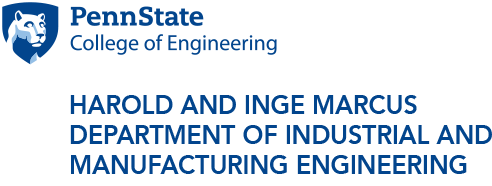NSF funds research to improve service industry efficiencies
11/19/15
UNIVERSITY PARK, Pa. — Guodong (Gordon) Pang, assistant professor of industrial engineering, has been awarded a $250,000 National Science Foundation grant in the highly competitive Service Manufacturing and Operations Research Program for his three–year research project titled, “Large-scale fork-join networks with synchronization constraints.”
Fork-join networks consist of a set of service stations that complete job tasks simultaneously and sequentially under pre-determined constraints in order to complete a service from start to finish. Examples of service industries using these networks include manufacturing and telecommunications, data centers and health care settings.
Pang’s research focuses on fork-join networks in which jobs can only be synchronized for service completion when all of the associated parallel tasks have been completed. Such networks can be used to model patient flows in hospitals, such as in the treatment of patients in emergency departments and the process of discharging patients.
Pang has been collaborating with Geisinger Health Systems as he works with the team at the Geisinger Center for Healthcare Systems Re-Engineering. They are taking a data-driven approach to study these network models in various units of the hospital.
“Through our research we hope to provide important insights for many systems that require multiple parallel and sequential operations in order to successfully, and efficiently, complete a service that leaves both the provider and the patient—or customer—happy and satisfied with the experience,” said Pang.
Pang is incorporating his research into existing graduate courses on service networks and is planning to develop new undergraduate courses and projects that center on service engineering. He hopes that this will motivate STEM-trained graduates to use the tools they develop over the course of their education to improve the efficiency and quality of delivered services.
Hongyuan Lu, who recently completed his doctoral requirements and will receive his doctorate in industrial engineering in December, has been assisting Pang on his research. Yuhang Zhou, a current graduate student in industrial engineering, will assist Pang with the research moving forward.




